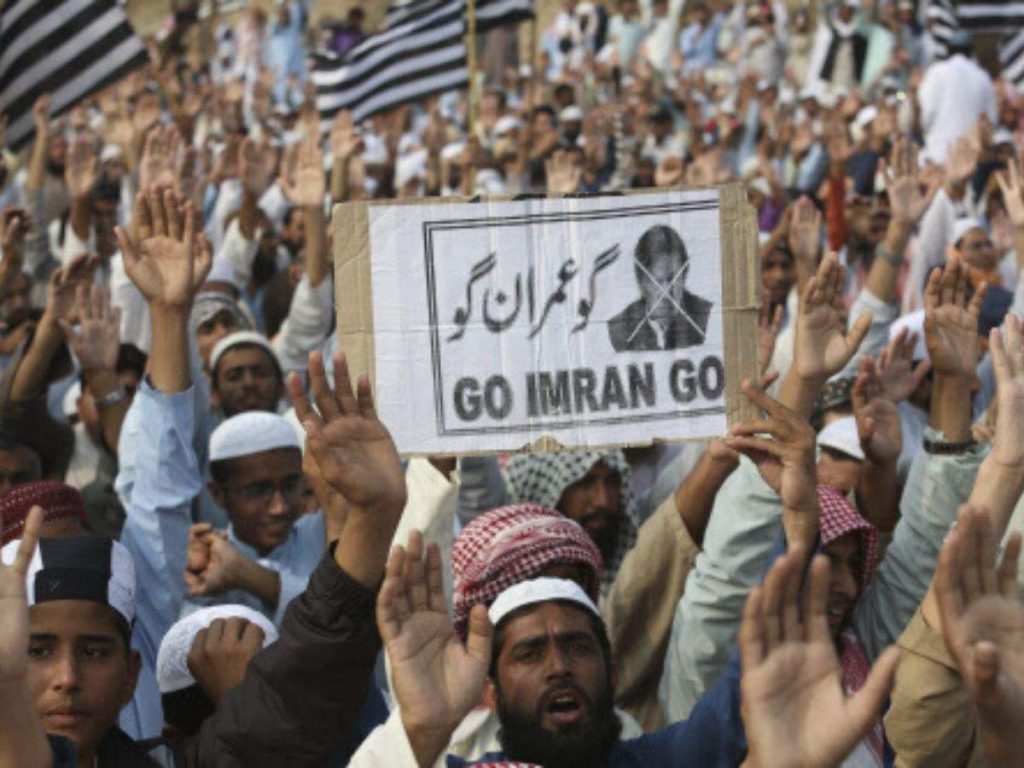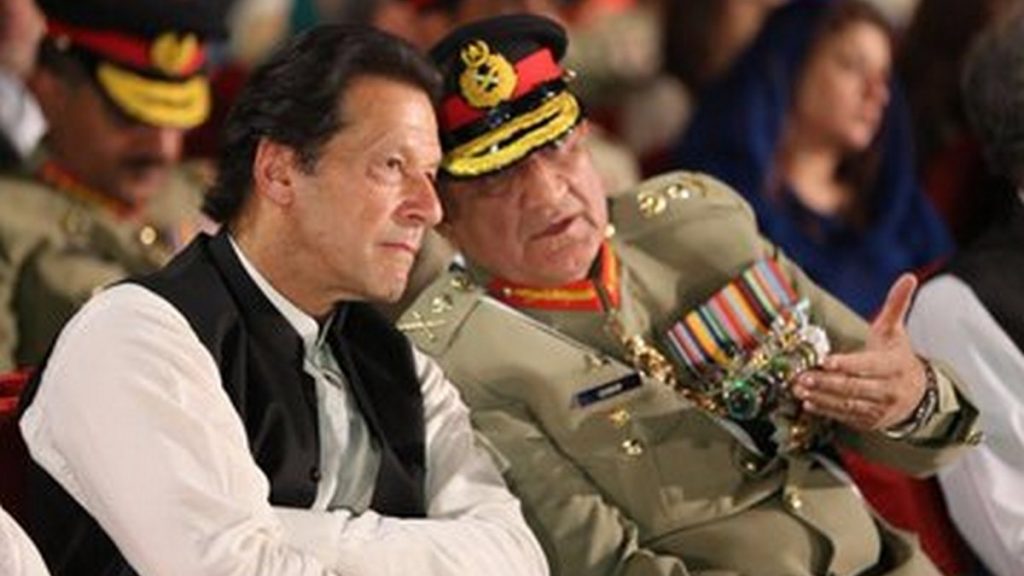
Summary: Protesters led by the opposition alliance PDM have been demanding that PM Imran Khan step down for several reasons. Rising prices, power cuts, closure of businesses, Double-digit inflation, a poor economy, women safety, curbs on civil liberties and media censorship are cited by the opposition as the reason for the protests.
Huge protests have erupted in different cities of Pakistan demanding that PM Imran Khan step down over poor governance, incompetence and increased control of the Army in the government. On Sunday, lakhs of protesters defied coronavirus restrictions to join the protests.
The protests are led by an alliance of 11 opposition parties called the Pakistan Democratic Movement (PDM) comprising the Pakistan Muslim League (N) of Nawaz Sharif and Pakistan People’s Party of Bhutto-Zardaris. Other key constituents of the PDM are the Jamiat Ulema-e-Islam (Fazlur), the Pakhtunkhwa Milli Awami Party, the Baloch National Party and the Pashtun Tahaffuz Movement.
The Sunday protest in Lahore was the culmination of the first phase of protests during which similar agitations were held in various cities of the country. A march on the capital of Islamabad has been planned in January to increase the pressure on Khan’s government. Rising prices, power cuts, closure of businesses, Double-digit inflation, a poor economy, women safety, curbs on civil liberties and media censorship are cited by the opposition as the reason for the protests.
Few days ago, similar large scale protests were held in Multan. The opposition parties have accused Khan of being installed by the military in a rigged 2018 election. Maryam Nawaz, daughter of former prime minister Nawaz Sharif, who lives in exile in London despite being sought on corruption charges by a Pakistani court, attended the rally. Her father Nawaz Sharif has accused the army, specifically army chief General Qamar Javed Bajwa, and intelligence chiefs of rigging the 2018 national elections to block his party from seeking a new term.

Pakistan has seen continuous protests against the Imran Khan government since mid-September. It began with people taking to the street over a gangrape case. Now, a united Opposition is seeking removal of Imran Khan and hitting out at the Pakistan Army over a range of issues. The opposition leaders at the protests have accused the army for behaving as “state above the state”. They also accuse General Bajwa was the face of the Army’s plan to see Imran Khan become the prime minister. Imran Khan has been accused of being a puppet of the army and the allegations were rekindled after he controversially gave an extension of three years to General Bajwa as Pakistan Army chief.
Imran Khan’s government responded by arresting the son-in-law of Nawaz Sharif Mohammad Safdar who himself is a retired Captain of the Pakistani army. When the police chief in Karachi refused to arrest Safdar, the Army brazenly abducted the Karachi police chief to get him to sign the documents to arrest Safdar. Pakistani intellectuals, journalists and media reported these incidents widely. Safdar was released on bail later.
Imran Khan warned that Pakistan would see a “new Imran Khan” hinting that his government would crackdown against the protesters. The protesters reminded him that he came to power with the promise to build a “new Pakistan” but has failed on all fronts including foreign policy. Opposition has targeted Imran Khan for failing to counter India at the international stage including the UN and for tarnishing the image of Pakistan.
The economy of Pakistan continues its downfall which started much before the COVID19 pandemic struck the world. Pakistan had repeatedly approached China and World Bank for more funds to repay and also manage its economy. However, with no signs of recovery, Pakistan is forced to borrow by pledging its assets. China has bailed out Pakistan on several occasions, the latest being Sunday when it agreed to provide $1.5 billion financing line to repay the $2 billion debt which Pakistan owed Saudi Arabia.
In November, Pakistan had reportedly sought $2.7 billion loan from China for the construction of package-I of the Mainline-1 project of China Pakistan Economic Corridor (CPEC). China has become Pakistan’s largest creditor for the past few years. The opposition is also targeting Imran Khan on his failed economic policies and increasing debt of the country without working out an alternative.
